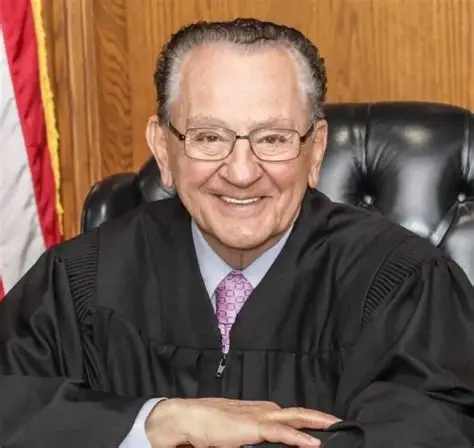Frank Caprio, the retired Rhode Island municipal judge who became an online sensation for his compassionate approach on the television series Caught in Providence, has died aged 88.
His family confirmed on his official social media accounts that he “passed away peacefully” following “a long and courageous battle with pancreatic cancer.”
Caprio presided over Providence municipal court for nearly four decades, retiring in 2023. His courtroom became the setting for Caught in Providence, a reality series that won international attention for its sympathetic handling of minor offences. Clips from the programme, often showing Caprio’s humour and kindness, have been viewed more than one billion times across social media platforms.
Unlike many of television’s more combative judges, Caprio cultivated a reputation for warmth and empathy. He frequently highlighted issues of inequality within the justice system, remarking in one video: “The phrase ‘with liberty and justice for all’ represents the idea that justice should be accessible to everyone. However, it is not. Almost 90% of low-income Americans are forced to battle civil issues like healthcare, unjust evictions, veterans’ benefits and, yes, even traffic violations, alone.”
Some of his most popular moments featured children joining him on the bench to help decide their parents’ traffic cases, or instances where he dismissed fines after listening to the personal struggles of those before him. In one widely shared clip, he cancelled $400 in tickets for a grieving mother whose son had been killed.
Caprio family’s tribute
In a tribute, his family described him as “a devoted husband, father, grandfather, great-grandfather and friend,” adding: “Beloved for his compassion, humility, and unwavering belief in the goodness of people, Judge Caprio touched the lives of millions through his work in the courtroom and beyond. His warmth, humour, and kindness left an indelible mark on all who knew him.”
Rhode Island governor Dan McKee also paid tribute, saying: “Judge Caprio not only served the public well, but he connected with them in a meaningful way, and people could not help but respond to his warmth and compassion. He was more than a jurist, he was a symbol of empathy on the bench, showing us what is possible when justice is tempered with humanity.”



